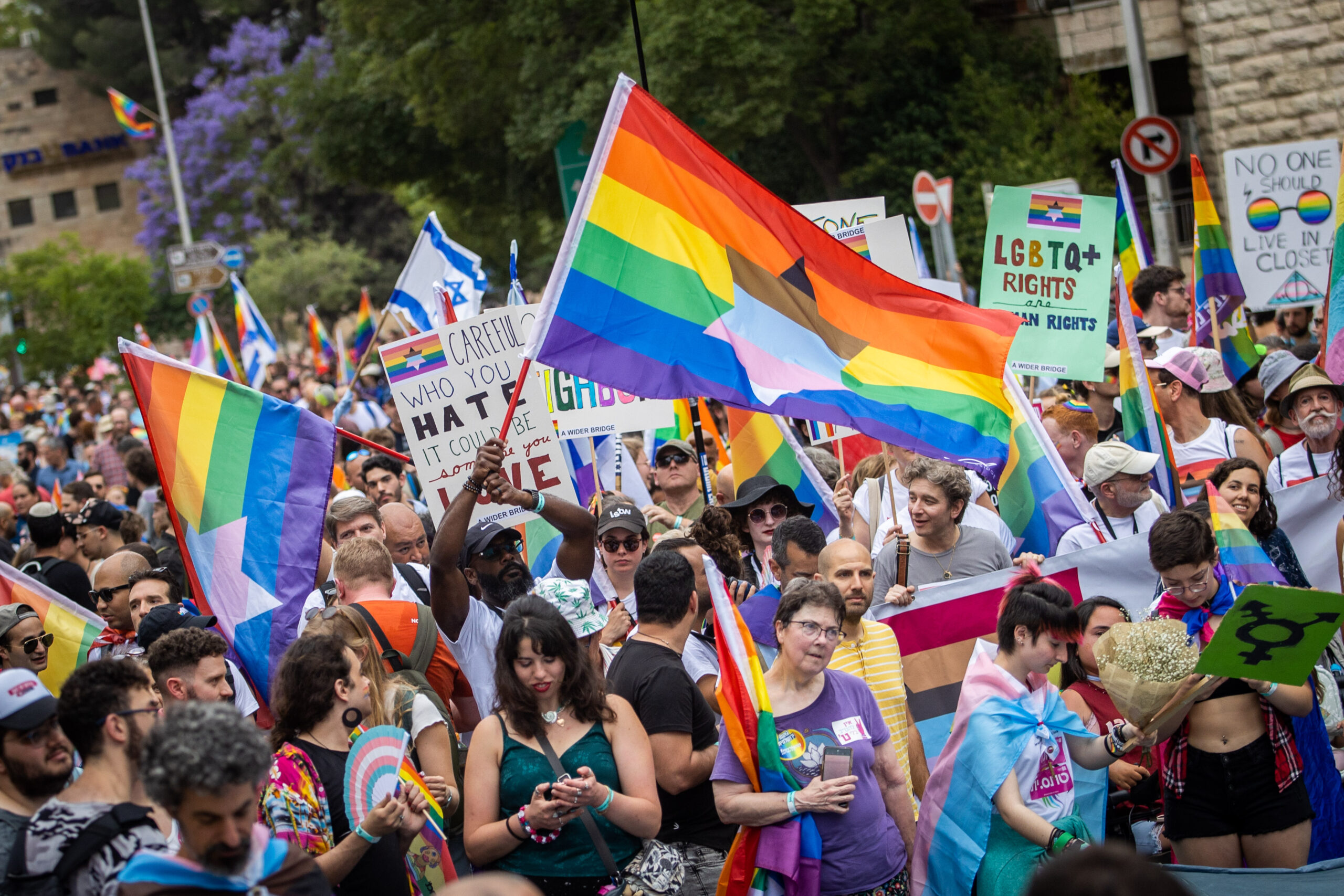What will you do to make Pride safe this year?
As published in the Washington Blade
March 14, 2024
By Ethan Felson
Each year, hundreds of thousands of Jews and supporters of Israel attend Pride marches. With a few exceptions, these spaces have always been safe and welcoming for the broader Pride community.
But this year is different.
For American Jews, anxiety reigns as we head into this Pride season. The appalling rise of antisemitism since Oct. 7 forces us to ask difficult questions. As many Jews increasingly feel alienated and excluded from progressive spaces, we’re left to wonder: If I wear a Jewish symbol, march with a Jewish group, or wave a rainbow flag adorned with the Star of David, will I be safe at Pride?\
Even before Oct. 7, LGBTQ Jews had plenty of reason to feel trepidation about their safety at Pride. From blanket bans on Stars of David at past Pride gatherings to antisemitism on display at the recent Sydney Pride, too often Jews feel forced to choose between their LGBTQ and Jewish identities and hide their connection to Israel.
Since Oct. 7, terms like “apartheid,” “genocide” and “Zionism equals racism” are increasingly thrown around casually, often without a nuanced understanding of their impact or the realities they oversimplify. This rhetoric not only alienates but also endangers Jewish queer people. It makes us feel emotionally unsafe. It increases the chances that we will be physically unsafe as well.
We must not allow the Israel-Palestine conflict to be imported into Pride.
I will always remember the euphoria of the first Pride rally I attended. I was barely 18 years old, in a crowd of people of all ages, races, genders and gender orientations — and they were like me. Queer. It felt safe. It was the first time I experienced that feeling of safety, and it will always stay with me.
Like Pride events everywhere, it was a vibrant, colorful space for LGBTQ people to celebrate our true authentic selves, without fear or reservation.
But that feeling of safety wasn’t shared by everyone in my small New England town. I soon noticed a few people scattered throughout the crowd wearing paper bags over their heads, with eye holes so they could see but not be seen. I later learned that those faceless people were teachers who, in those days before civil rights protections, needed to protect their identities and their careers.
They did not feel safe. Will Jews and those who are connected to Israel feel safe this year?
The history of Pride is a testament to courage in the face of adversity. It wasn’t long ago when attending Pride events was a defiant act against societal norms, where participants like those teachers faced tangible threats of discrimination, ridicule and even violence. Even today in some places, our queer community still navigates a gauntlet of hatred as we try to celebrate who we are.
It’s crucial to recognize that within the Jewish community, there is a wide spectrum of views on the Israeli-Palestinian conflict, including many who are deeply committed to advocating for Palestinian rights. In fact, many of the 1,200 innocent Israelis murdered on Oct. 7 were Zionists who devoted their lives to reconciliation and peace with their Arab neighbors.
We are at a pivotal moment, one that demands action: What can we do to ensure Pride remains a safe space for everyone, including Jewish participants?
It’s imperative that Pride committees around the country proactively address these concerns. They must implement training programs focused on de-escalation and fostering an environment of understanding and respect.
As individuals who stand in solidarity with the values of Pride, each of us must consider our role in this effort. Will you march alongside those of us who feel vulnerable, offering your presence as a shield against intolerance? Will you engage in dialogues that challenge the importation of external conflicts into Pride, advocating instead for a celebration that unites rather than divides?
The true test of inclusivity at Pride lies not merely in welcoming a diverse crowd, but in ensuring that every participant feels safe and valued. If we remain indifferent to the vulnerabilities faced by Jewish queer people this Pride season, we will fall short of the very ideals of inclusivity and solidarity that Pride stands for.
Just as we expect schools to protect trans and nonbinary students like Nex Benedict, we have a responsibility in the LGBTQ community to ensure that people can carry an Israeli flag or a Palestinian flag, wear a yarmulke or a hijab and be safe.
As we look forward to this year’s Pride, let us commit to making it a space where safety is not a privilege afforded to some but a right enjoyed by all. Let’s engage with our local Pride committees, advocate for comprehensive safety measures and stand in solidarity with those who feel at risk.
Only then can we celebrate the true spirit of Pride, rooted in love, acceptance and the unwavering belief in equality for all.
Ethan Felson is the executive director of A Wider Bridge.

